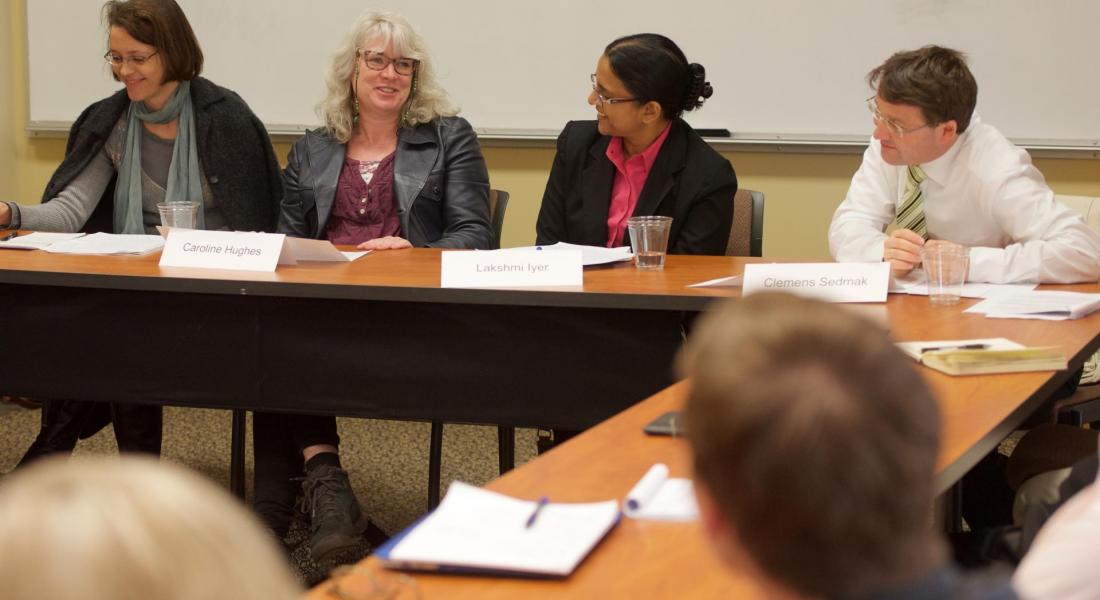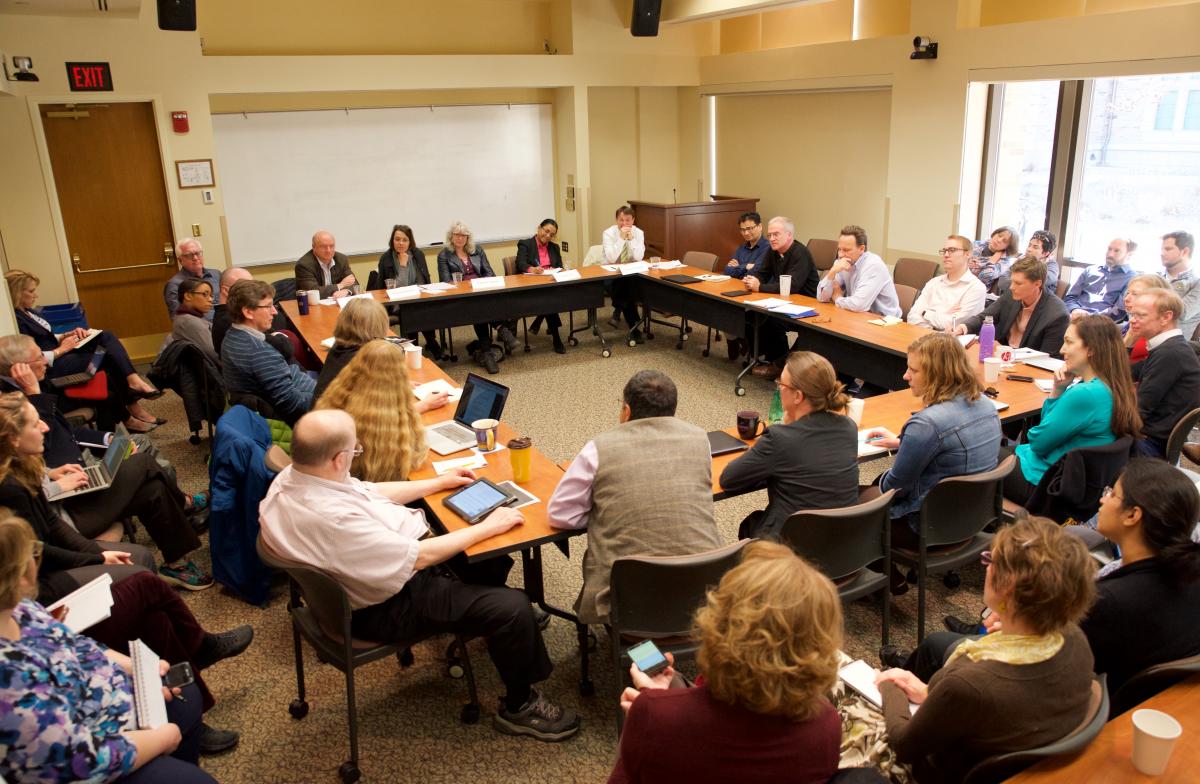
Several dozen faculty and staff of the new Keough School of Global Affairs took part in a recent roundtable on integral human development, or IHD – a concept at the core of the School’s mission.
The April 19 discussion, hosted by the Kellogg Institute for International Studies, focused on the meaning of the phrase and its implications for the future of the Keough School’s teaching and research.
“In discussing the term, we really get at the question of what we value, what we’re about as a community of scholars and practitioners, and where we’re going next,” said Scott Appleby, the Marilyn Keough Dean of the Keough School and event moderator.
Integral human development, with its emphasis on human flourishing, has long been a focus at the Kellogg Institute, in part through an ongoing multidisciplinary research initiative on human dignity and human development.
It’s also been part of the conversation surrounding the Keough School since its inception in 2014. Now, as the school wraps up its first full academic year of operation with a master’s program and prepares to offer a supplemental major in global affairs for undergraduates, Appleby said the timing is right to revisit how IHD advances the school’s unique mission.
 “How does this concept set the Keough School apart or make it distinctive from other global affairs schools, or for that matter, humanitarian NGOs?” he asked. “If we aspire to advance IHD, what does that mean, practically and concretely, in our faculty hiring and our teaching, in our policy recommendations and studies, and in practice on the ground?”
“How does this concept set the Keough School apart or make it distinctive from other global affairs schools, or for that matter, humanitarian NGOs?” he asked. “If we aspire to advance IHD, what does that mean, practically and concretely, in our faculty hiring and our teaching, in our policy recommendations and studies, and in practice on the ground?”
He described IHD as an “ongoing, evolving” concept that encompasses key research initiatives at the Keough School and its constitutive units, such as poverty reduction, conflict resolution, human rights, and economic development.
So did many of the faculty who spoke at the roundtable, in a wide-ranging discussion over the meaning of IHD and how the values that underlie it can be put in practice at the Keough School through research and teaching.
An interdisciplinary panel of five faculty led the debate. Among them was Kellogg Faculty Fellow Lakshmi Iyer, an economist and director of the Keough School’s sustainable development concentration, who said that an informal poll of her colleagues showed most define IHD as “a holistic view of development.”
“It cannot be just economic development,” she said. “It has to be more than that.”
Participants highlighted the challenges of teaching courses on development, given the contested nature of the concept, and debated the meanings of the words “integral,” “human,” and “development.”
Kellogg Visiting Fellow and panelist Séverine Deneulin noted the interconnectedness of policy and personal transformation, and said putting the concept of IHD into practice at Keough could mean incorporating more environmentally sustainable practices throughout the school.
“Development is not just what we do out there,” she said. “It’s what we do at Notre Dame and within ourselves.”
She described IHD, with its roots in Catholic social thought, as a “non-exhaustive concept whose meaning and reach always escapes us and whose grasp can never be entirely detached from our own positionality.”
It raises a number of questions about what it means for a society to be truly developed, she added: What does it mean to grow as a human being? Should measurements of IHD include quantifiable aspects like higher life expectancies and lower child or maternal mortality rates? And should other considerations, such as protecting the environment and a sense of responsibility toward others, be taken into consideration?
Other panelists were Caroline Hughes, the Rev. Theodore M. Hesburgh, CSC, Chair in Peace Studies at the Kroc Institute for International Peace Studies, and Kellogg Institute Faculty Fellow Clemens Sedmak (global affairs).
Appleby said Kellogg’s ongoing work on human dignity, including through the Ford Program, and its history of democratization work in Latin America, Africa, and around the world have made it a leader at Notre Dame in the field of IHD.
“Kellogg has been the flagship institute for what is now the Keough School for many years in exploring this connection between the work of development and dignity,” he said.





